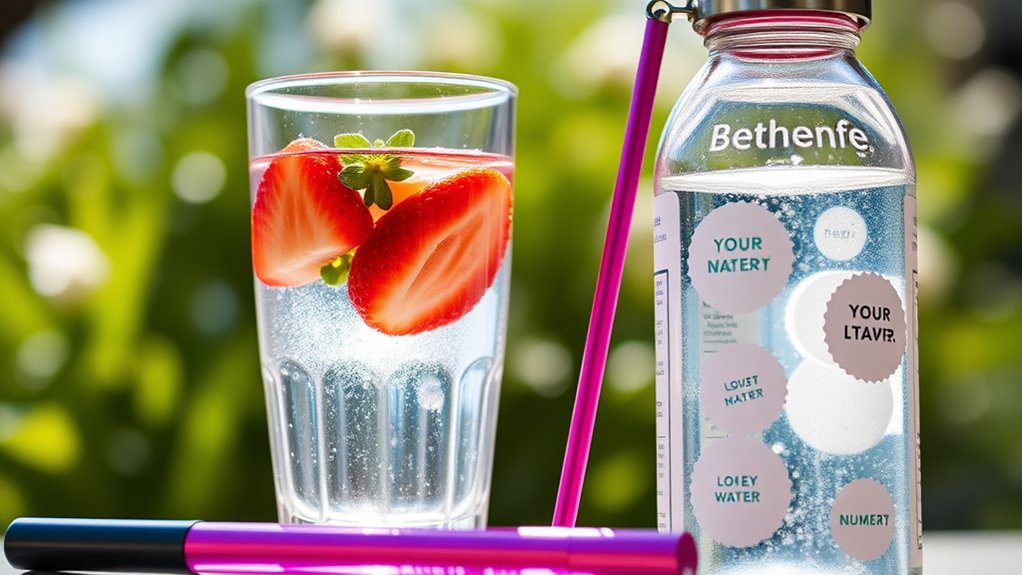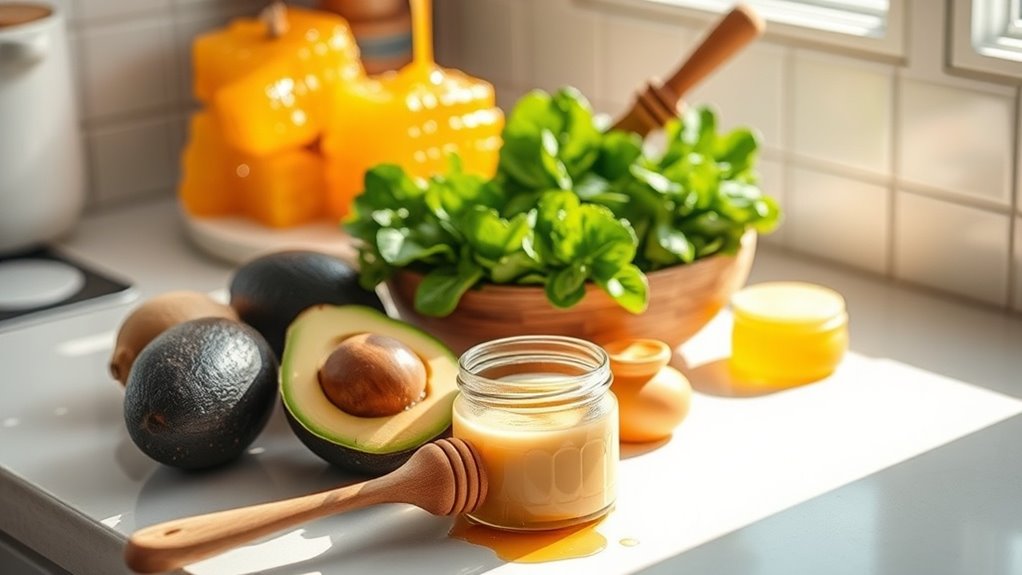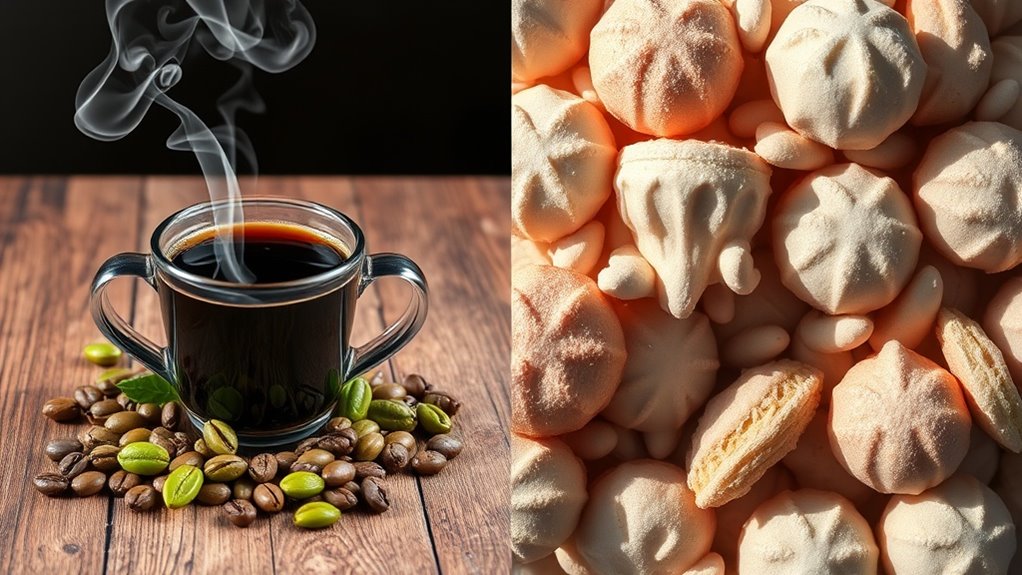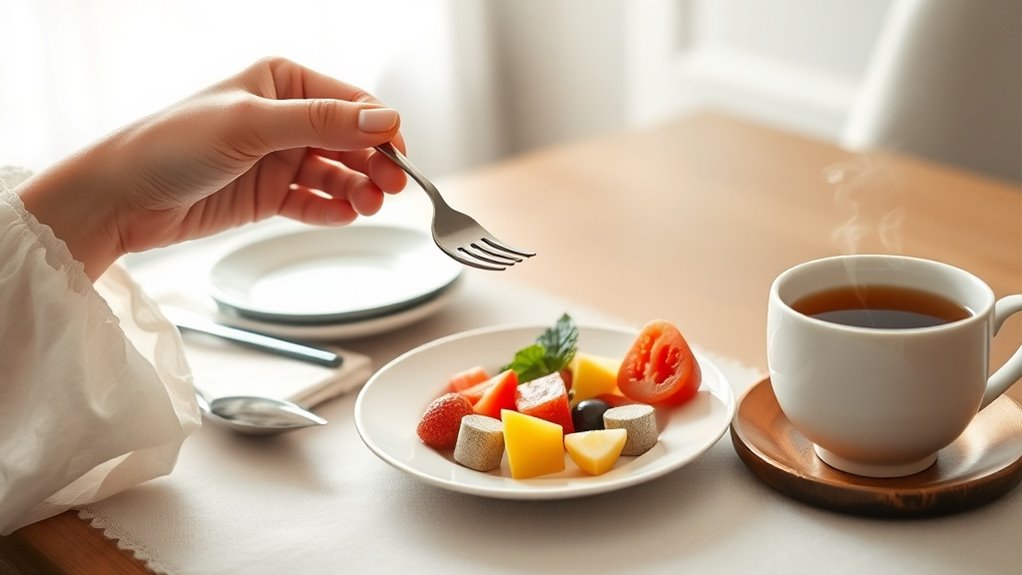Are You Drinking Water the Wrong Way. Hydration Hacks!
Are you sure you’re drinking water the right way? Many people overlook the daily recommendation of 2-3 liters and fall for common myths, like only drinking when they’re thirsty. You might be surprised to learn that how and when you hydrate can significantly impact your overall health. Understanding the nuances of hydration could unlock better energy levels and cognitive function. So, what are the key factors you need to consider?
Common Mistakes in Hydration
Have you ever wondered if you’re truly hydrating properly? Many people overlook common mistakes that can hinder their hydration efforts.
One major error is relying solely on thirst as a guide; by the time you feel thirsty, you may already be dehydrated.
Relying on thirst alone can lead to dehydration; don’t wait to drink until you feel thirsty.
Another mistake isn’t considering your activity level or climate.
Adjust your water intake based on exercise and heat.
Additionally, sugary drinks can contribute to dehydration rather than quench your thirst.
To stay on track, use these hydration tips: carry a water bottle, set reminders, and monitor your urine color. Staying aware of hydration strategies can significantly improve your overall water intake.
Following these strategies ensures you stay well-hydrated!
The Importance of Water Temperature
Understanding hydration goes beyond just knowing how much water to drink; the temperature of the water you consume can impact your body’s ability to absorb it effectively.
Drinking cold water may offer a refreshing boost, especially during workouts, as it cools your body down.
However, warm water can aid digestion and enhance circulation, promoting better nutrient absorption.
Studies suggest that your body absorbs room temperature water more efficiently than very cold water. Additionally, drinking warm water can help improve digestive relief, making it a beneficial choice for those seeking natural techniques to soothe their stomach.
Timing Your Water Intake
Timing your water intake can significantly impact your hydration levels and overall performance. Start your day with a glass of water to replenish fluids lost overnight, and don’t forget to hydrate before hitting the gym to boost your endurance. Additionally, incorporating easy-to-implement morning habits can further elevate your energy levels and enhance your overall wellness routine naturally.
Optimal Morning Hydration
When you wake up, your body is often in a state of mild dehydration after several hours of sleep, making optimal morning hydration essential for kickstarting your day. Drinking water first thing can boost metabolism, enhance cognitive function, and support digestion.
| Time of Day | Recommended Intake | Benefits |
|——————|——————-|——————————-|
| Upon Waking | 8 oz (250 ml) | Rehydrates, boosts metabolism |
| Mid-Morning | 8 oz (250 ml) | Maintains energy levels |
| Before Breakfast | 8 oz (250 ml) | Aids digestion |
| Before Exercise | 8 oz (250 ml) | Preps body for activity |
Start your day hydrated!
Pre-Workout Water Strategy
How can you maximize your workout performance with the right water strategy?
Timing your water intake is crucial.
Aim to hydrate well in the hours leading up to your workout.
This helps ensure your muscles are well-prepared for exertion.
-
Drink 16-20 ounces about two hours before exercising.
-
Consume another 8-10 ounces 20-30 minutes before your session.
-
Replenish fluids during and after your workout to maintain hydration levels.
Enhancing Flavor for Better Hydration
What if enhancing the flavor of your water could make staying hydrated feel effortless?
Adding natural ingredients like lemon, cucumber, or mint can transform plain water into a refreshing drink. Research shows that flavored water increases water intake, making hydration easier. You could also try infusing your water overnight for a burst of flavor. Herbal teas, like hibiscus or peppermint, offer a tasty alternative without added sugars. If you want something fizzy, carbonated water with a splash of fruit juice can satisfy your taste buds. Additionally, incorporating ingredients like ginger can provide health benefits that further support overall wellness.
Hydration Hacks for Active Lifestyles
Staying hydrated during physical activity can significantly enhance your performance and recovery.
To ensure you’re getting the most out of your hydration strategy, consider these effective hacks:
-
Pre-hydrate: Drink water before workouts to boost endurance and energy levels.
-
Electrolyte balance: Incorporate electrolyte drinks during intense sessions to replenish lost minerals and maintain optimal function.
-
Hydration schedule: Set reminders to drink water at regular intervals, ensuring you stay ahead of your hydration needs.
Recognizing Signs of Dehydration
You need to be aware of the common signs of dehydration, like dry mouth, fatigue, and dark urine.
It’s essential to understand your daily hydration needs and how electrolytes play a crucial role in maintaining balance. In addition, incorporating natural remedies for headaches may help alleviate some symptoms associated with dehydration.
Recognizing these symptoms early can help you stay healthy and energized.
Common Dehydration Symptoms
Many people overlook the early signs of dehydration, but recognizing these symptoms is crucial for maintaining optimal health.
If you’re feeling unusually fatigued or have a persistent headache, it might be time to assess your hydration.
Other common signs include:
-
Dry mouth or increased thirst
-
Dark yellow urine or infrequent urination
-
Dizziness or lightheadedness
Being aware of these indicators can help you take action before dehydration worsens.
Remember, staying hydrated isn’t just about quenching your thirst; it’s essential for your overall well-being.
Monitor these symptoms and adjust your water intake accordingly to support your health.
Daily Hydration Needs
How much water do you really need each day?
Generally, adults should aim for about 2.7 liters (91 ounces) for women and 3.7 liters (125 ounces) for men, including all beverages and food.
However, individual needs vary based on factors like activity level, climate, and overall health.
Listen to your body—thirst is a key indicator of hydration.
Dark urine, fatigue, and dizziness can signal dehydration.
To stay on track, consider carrying a reusable water bottle and refilling it throughout the day.
Importance of Electrolytes
Staying hydrated goes beyond just drinking water; it also involves maintaining a proper balance of electrolytes in your body.
Electrolytes, such as sodium, potassium, and magnesium, play crucial roles in muscle function and fluid balance.
When you’re dehydrated, you may experience symptoms like:
-
Fatigue or weakness
-
Dizziness or lightheadedness
-
Muscle cramps
Recognizing these signs early helps you restore your electrolyte levels effectively.
Incorporating electrolyte-rich foods or drinks into your routine can enhance your hydration strategy, ensuring optimal performance and well-being.
Don’t underestimate the power of these vital minerals in keeping you energized and hydrated!
The Role of Electrolytes in Hydration
Why are electrolytes crucial for optimal hydration? They’re essential minerals like sodium, potassium, and magnesium that help regulate fluid balance in your body.
When you sweat or exercise, you lose these electrolytes, which can lead to dehydration if not replenished.
Drinking plain water is great, but without electrolytes, you mightn’t fully hydrate.
Consider incorporating electrolyte-rich foods or drinks, especially after intense activities.
They help maintain nerve function and muscle contractions, ensuring you stay energized. Additionally, certain nutrients found in healing foods can further support your body’s hydration and recovery processes.




